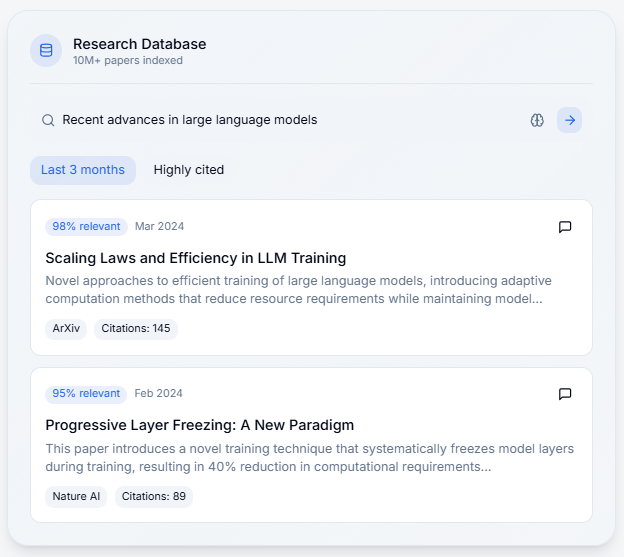
5 Best LangChain Alternatives in 2025 (Complete Review)

LangChain has been a go-to for many businesses with its effective capabilities in deploying large language models (LLMs). It's designed to automate repetitive tasks efficiently by using advanced AI models. These tools can handle routine data entries, scheduling, and even complex workflows.
However, it's not a one-size-fits-all solution for every organization's unique needs and challenges.
That’s why exploring alternatives is essential. It allows businesses to discover solutions that are not just efficient but perfectly tailored to their specific objectives.
In this article, we'll explore the best LangChain alternatives. These options stand out as they're easier to use, customizable to fit different needs, and more budget-friendly.
Use Cases of LangChain#
LangChain is a powerful platform designed to use the capabilities of large language models for various applications. Here are some of the key features that make it a valuable tool for developers and businesses:
Integration With LLMs#
LangChain is easy to integrate with prominent large language models like GPT-3 and its successors. This allows users to use the latest advancements in AI for natural language understanding and generation.
Modular Architecture#
The platform features a modular design, which enables users to plug in different components as needed. Flexibility allows for customization according to specific project requirements, whether it's data processing, model training, or deployment.
Wide Range of Applications#
LangChain supports a variety of applications, from generating content and automating customer service to improving data analysis and facilitating educational tools. This versatility makes it suitable for industries ranging from tech and finance to education and healthcare.
Developer-Friendly#
With comprehensive documentation and support for multiple programming languages, LangChain is accessible to developers with different skill levels and technical backgrounds. The platform's developer-friendly environment encourages innovation and experimentation.
Scalability#
LangChain is built to scale, supporting both small-scale projects and enterprise-level deployments. Its ability to handle increasing loads and complex queries makes it suitable for growing businesses and expanding applications.
Community and Support#
LangChain offers a strong community support network and regular updates, providing users with the resources they need to implement and use the platform successfully. This ongoing support is essential for maintaining and improving AI-driven projects.
Why Look for Alternatives to LangChain?#
While LangChain provides a robust set of tools, it may lack specific features or capabilities that some businesses require for their particular use cases. Here are the other reasons why:
Complexity vs. Convenience#
While LangChain offers comprehensive tools, many users feel swamped by features they don’t need for simpler projects. It can be overwhelming for more straightforward use cases like basic task management or data-driven operations, where a more direct solution is preferable.
LangChain is built for developers. To get the most out of it, you need to know programming languages like Python or JavaScript. It also involves writing custom scripts, connecting APIs, and troubleshooting technical issues during setup. This can take a lot of time, especially for beginners.
Another aspect to consider is pricing. For some users, LangChain’s plans can be a barrier. Many developers and small businesses operate on tight budgets and need tools with flexible payment options.
Limited Built-In Customization#
Different businesses have unique needs and may require more customizable options than LangChain provides. Alternatives might offer better flexibility, such as retrieving data from unique sources or integrating with existing AI systems.
Flexibility also defines how well a platform can grow or adapt as your needs change. This is important if you’re scaling your business or working in an industry with changing requirements.
LangChain is flexible for technical users who want to build from scratch and integrate unique data sources or APIs. However, it depends on your technical skills and resources.
Customizing LangChain to fit specific needs can also take a huge amount of time, particularly for teams with limited resources. Alternatives often provide ready-to-use solutions that minimize setup time and let users focus on results.
Intricate Systems#
When dealing with intricate systems in AI tools, we refer to workflows with multiple interconnected components working together to achieve complex tasks. These systems often require the integration of data sources, APIs, and advanced logic.
While LangChain excels in handling such complexity, it often requires technical expertise to implement. LangChain offers a modular data framework that enables users to design detailed workflows from the ground up.
However, the technical demands can create a barrier for individuals or teams lacking programming experience.
Many LangChain alternatives take a more user-friendly approach to intricate systems. These platforms often include pre-designed workflows or prompt templates that can be quickly customized to meet specific needs.
Advanced Features and Innovation#
As the field of AI continues to develop, businesses may find LangChain lacking the latest innovations or advanced features available in the market. Alternatives that frequently update their offerings or include cutting-edge technologies can provide businesses with competitive advantages.
LangChain alternatives often include pre-trained models that can analyze data and make predictions without requiring extensive customization. Such tools integrate with analytics systems, which give real-time feedback on AI performance.
The combination of predictive capabilities and actionable insights makes these platforms invaluable for data-driven industries like finance, healthcare, and retail.
User Experience#
The success of an AI tool doesn’t just depend on its capabilities. It also depends on how easy and enjoyable it is to use.
In 2025, many LangChain alternatives have prioritized accessibility by introducing no-code or low-code interfaces. These tools allow users to create workflows using drag-and-drop builders, pre-made templates, and visual dashboards.
Collaboration is also made easier with these platforms. Teams can share workflows, assign tasks, and monitor progress within the same interface. For companies where multiple departments rely on AI tools, such as marketing, customer support, and sales, it maintains seamless teamwork.
Real-Time Performance Limitations#
Tasks like processing queries instantly, retrieving data faster, or powering live systems such as chatbots or analytics dashboards demand speed and precision. For certain users, LangChain may introduce delays or inefficiencies when dealing with these high-speed, real-time needs.
These limitations often stem from LangChain’s reliance on custom workflows and modular setups, which can introduce latency. For businesses such as customer service bots, real-time data monitoring, or live recommendation engines, these delays can impact user experience and overall efficiency.

Many LangChain alternatives are specifically optimized for real-time applications. They use faster data processing engines, simplified workflows, and more efficient infrastructure to make sure results are delivered.
5 Best LangChain Alternatives in 2025#
If you're looking for alternatives to LangChain that offer simplicity, improved features, and better cost-efficiency, here are the top five options worth considering:
1. Denser.ai#
Denser.ai is the best alternative to LangChain with its Denser Retriever tool. This tool is built for retrieval-augmented generation (RAG), a system that improves how information is found and used.
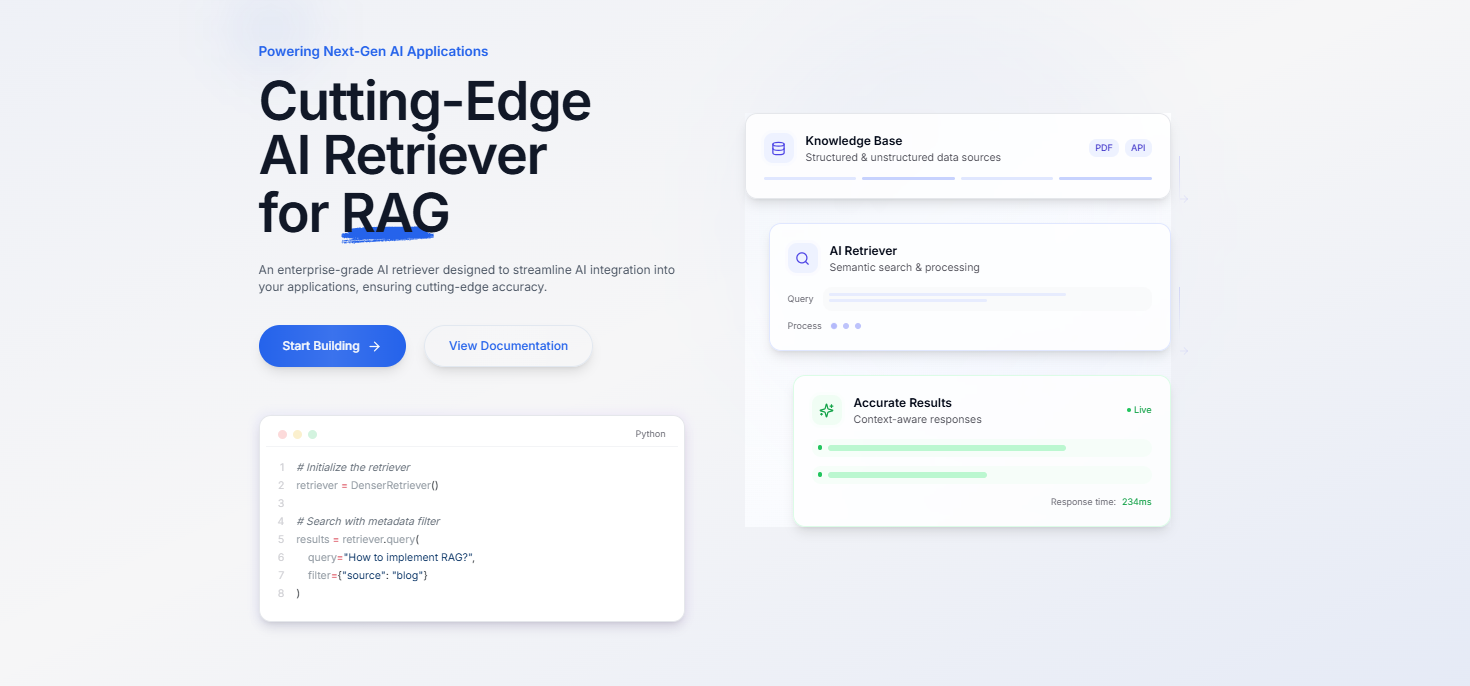
Denser Retriever combines smart search methods with AI-generated results, which gives you more accurate and meaningful answers to questions. It retrieves essential information from a large collection of documents or a comprehensive knowledge base.
This tool is also designed to be ready for real-world use. Whether you're setting up a chatbot, searching through documents, or analyzing legal texts, it ensures dependable performance and can scale as your business needs grow.
Why Choose Denser?#
While LangChain primarily focuses on connecting language models to data sources, Denser Retriever uses dense embeddings to understand the relationships between words and concepts.

If a user searches for "remote work policies," Denser Retriever looks for exact matches and retrieves related content, such as "work-from-home guidelines." A deeper context-aware search makes Denser.ai far more intuitive and effective for real-world use.
Denser.ai also incorporates a machine learning re-ranker, which refines search results so the most relevant data appears first. LangChain users often need to manually code similar optimizations, which makes Denser.ai a more efficient solution.
What's more, Denser Retriever outperforms traditional methods, including LangChain, in widely recognized benchmarks. It has shown a 13.07% improvement in retrieval accuracy, which saves businesses time and reduces costly errors.
Denser also introduces several standout features:
- Supports various search methods like keyword search, vector search, and advanced machine learning to refine results
- Uses XGBoost to blend different search methods effectively
- Sets a high standard for accuracy based on the MTEB retrieval benchmark
- Has proven effectiveness in real-life applications, such as powering chatbots and creating smart search engines
Denser Retriever is also open-source, meaning it's free for anyone to use or modify. It handles large amounts of data and is suitable for both small projects and large enterprise applications.
If you’d like to see how Denser.ai works in real-world scenarios, start deploying Denser Retriever now. Learn how your business can benefit from accurate data retrieval, smarter chatbots, and faster workflows!
2. LlamaIndex#
LlamaIndex, previously called GPT Index, offers useful features such as LlamaHub, which simplifies data ingestion from various sources.
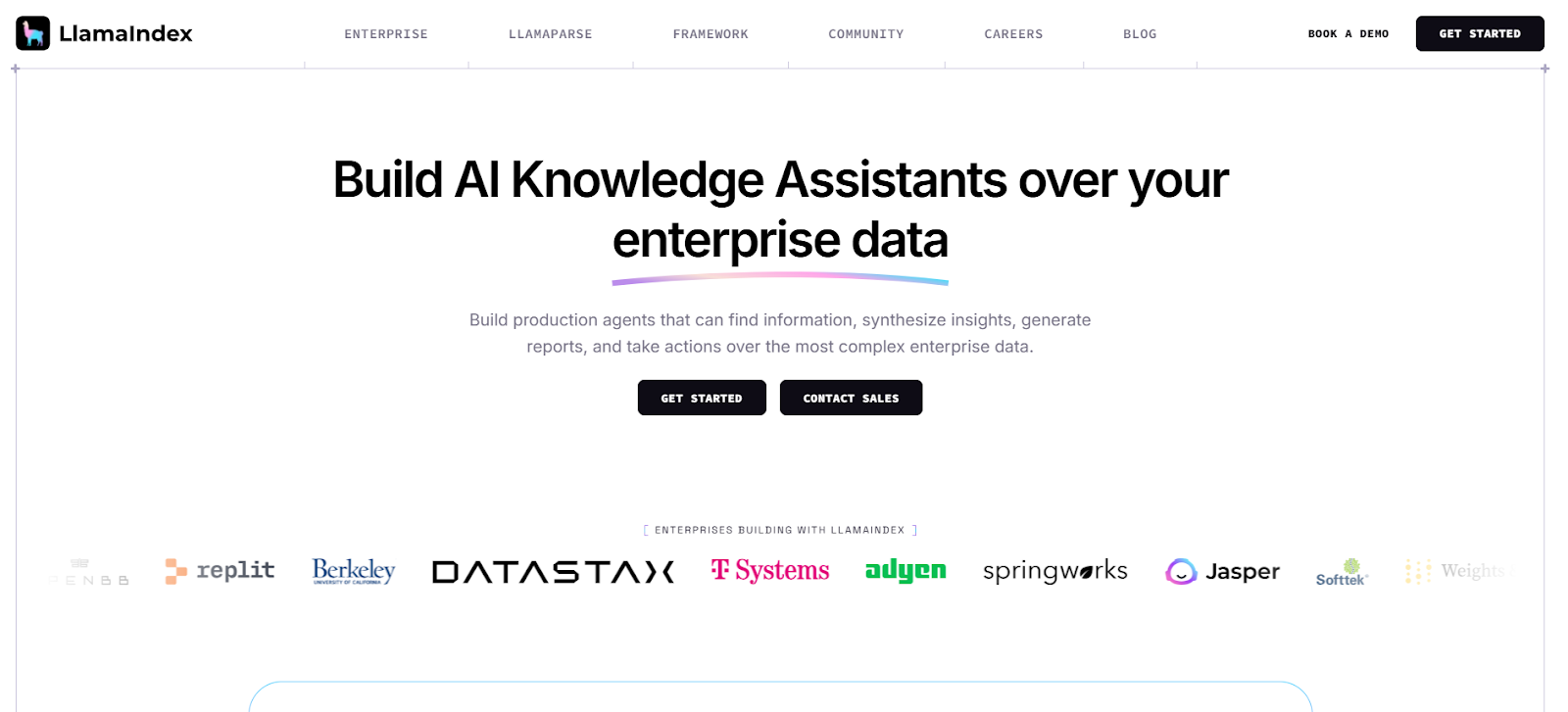
Image Source: llamaindex.ai
This feature helps businesses speed up workflows by automating the management of diverse data formats. However, the platform does not match the precision and scalability offered by Denser Retriever.
LlamaIndex includes tools like hypothetical document embeddings to synthesize data insights. However, it lacks the dual-search approach and machine learning-based re-ranking systems that make Denser.ai superior in delivering accurate and context-aware results.
Its reliance on a single query engine structure also reduces flexibility, which can be a drawback for businesses needing customizable workflows.
3. Auto-GPT#
Auto-GPT offers convenience by automating tasks based on simple user input. Users can specify their goals in plain language, and the system autonomously gathers information and performs the necessary actions.
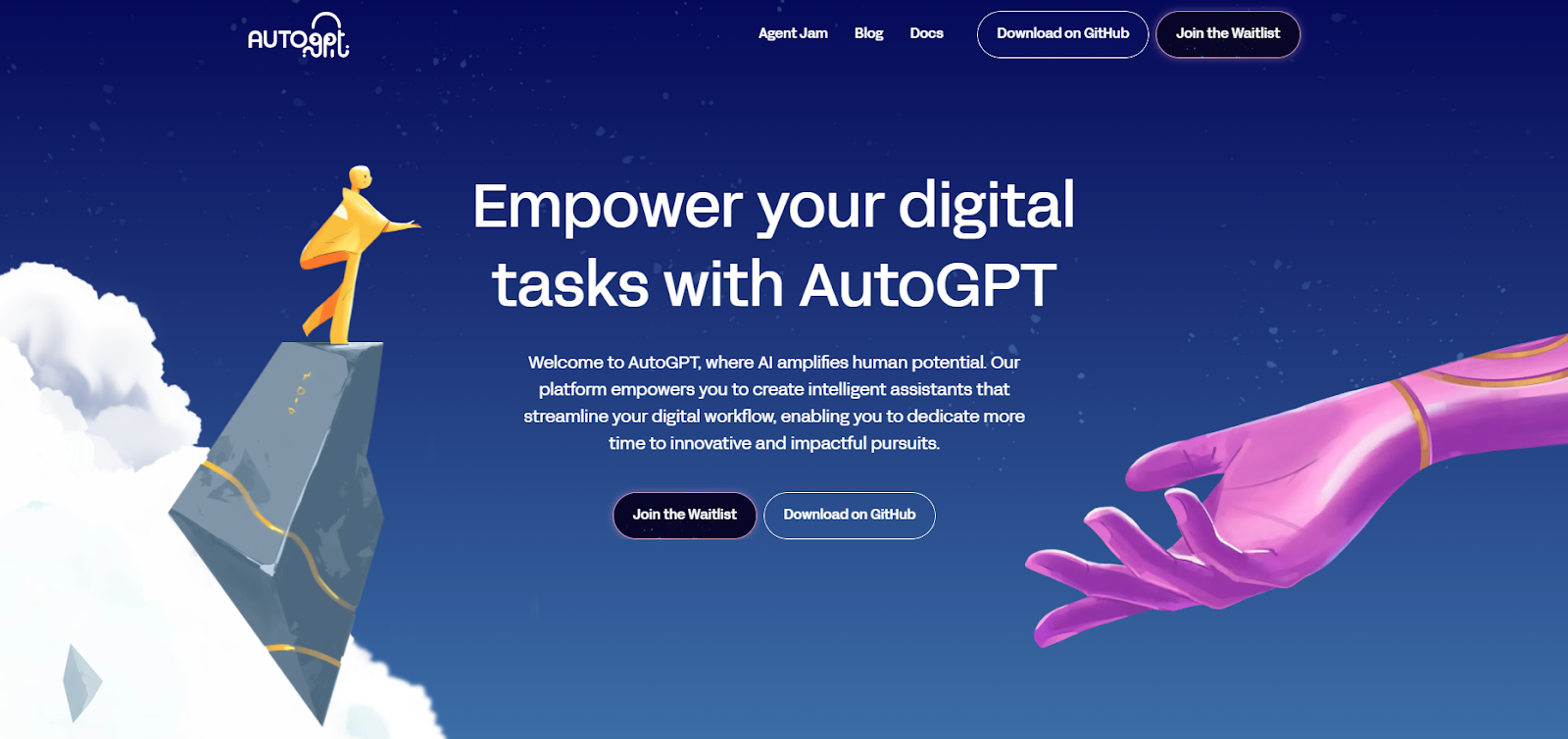
Image Source: agpt.co
While this feature makes it easy for beginners to get started, it also limits control over the process, which can lead to inefficiencies in complex workflows compared to Denser.ai.
Auto-GPT uses GPT-3.5 and GPT-4 for text generation, translation, and reasoning. While these models provide robust capabilities, they are only as effective as the task flow designed by the user.
It's less precise in data retrieval than Denser Retriever’s dual-search technology. Denser combines dense embeddings and traditional keyword searches for accurate, context-aware results.
While Auto-GPT can automate individual tasks, it cannot handle large-scale data management with the speed and accuracy required by enterprises. Denser Retriever’s ability to process millions of documents in real time gives it a bigger edge in performance and reliability.
4. TensorFlow#
TensorFlow is a machine learning platform that helps developers build and deploy applications powered by ML easily. It offers APIs for creating models using neural networks and performs complex numeric calculations for large datasets.
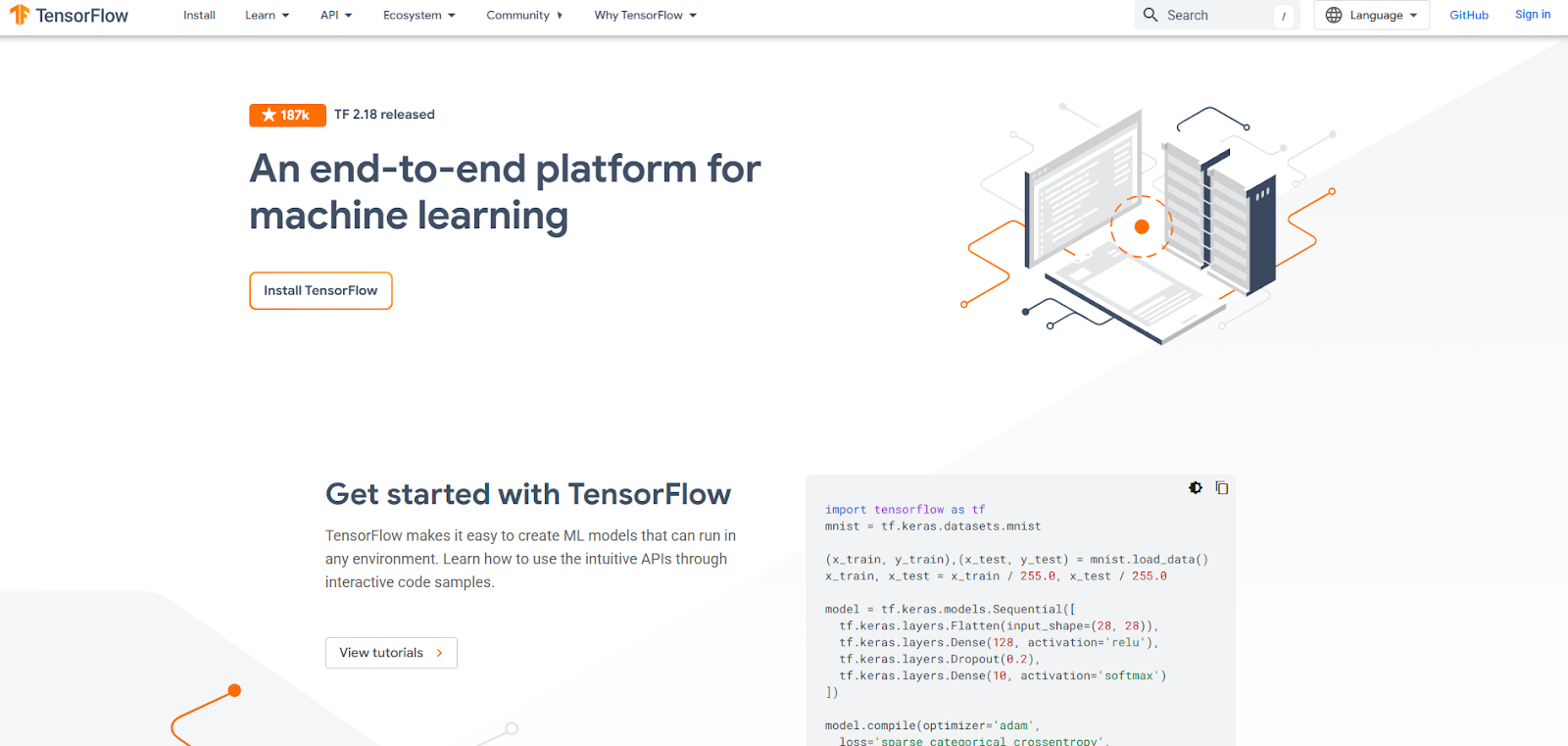
Image Source: tensorflow.org
TensorFlow includes a range of Machine Learning APIs suitable for both beginners and experts. It has stable support for Python and C and ongoing expansions for other languages like Java and JavaScript.
While TensorFlow works well with hardware like CPUs and GPUs and offers pre-trained models for tasks like image recognition, these features don’t address text-based data needs. Denser.ai can manage large-scale text-based operations and retrieve the exact information needed.
TensorFlow’s TensorBoard tool is also helpful for visualizing AI models but requires technical expertise, which can slow down implementation. Denser.ai removes this complexity and offers a ready-to-use platform that delivers real-time results without the need for deep technical knowledge.
5. AgentGPT#
AgentGPT is a platform that lets users easily create, customize, and deploy autonomous AI agents from their web browser. These agents can perform a wide range of tasks and interact intelligently with users.
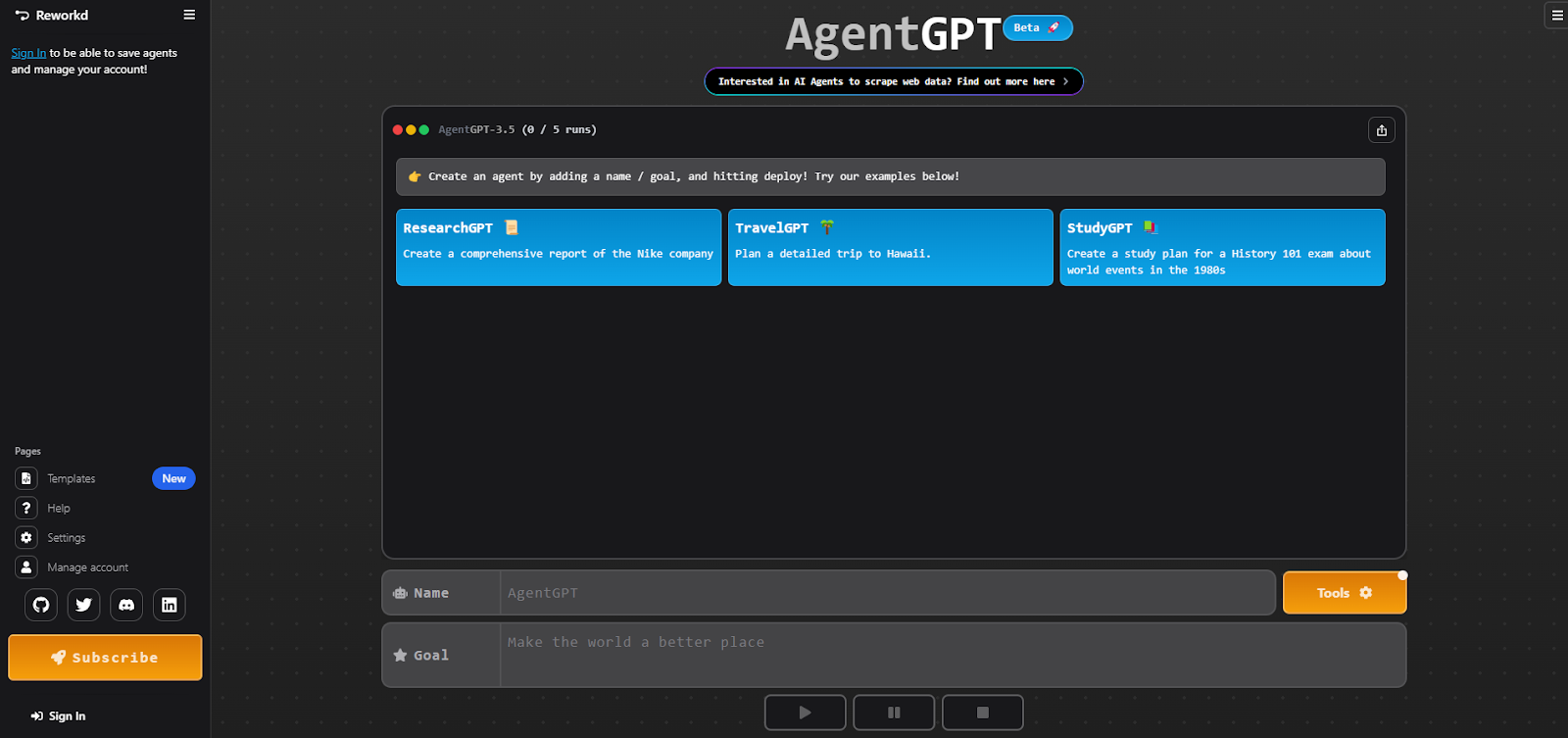
Image Source: agentgpt.reworkd.ai
It's powered by GPT-3.5, which provides strong language capabilities but lacks the advanced retrieval techniques found in Denser Retriever. It performs well for generating responses but doesn’t offer the same context-aware precision or scalability.
How to Choose the Best LangChain Alternative#
It's important that you recognize the gaps in your workflows, understand the limitations of existing tools, and choose a solution that helps your business operate smarter. Here's how you select the best alternative according to your organization's needs:
Understand What LangChain Doesn't Do for You#
Instead of focusing on what LangChain can do, consider where it falls short for your business.
Does it lack the flexibility to integrate with specific data connectors, or does it struggle to handle increasing demands as your business scales?
Platforms like Denser.ai address these weaknesses by offering real-world readiness, scalability, and precision designed for enterprise needs.
Think About Results, Not Just Features#
A list of features won’t solve your problems unless they lead to meaningful outcomes. What matters is how the platform helps you achieve your goals, such as faster data retrieval or better decision-making.
Ask yourself if the platform helps your business meet specific goals, such as faster retrieval of structured data or improved decision-making.
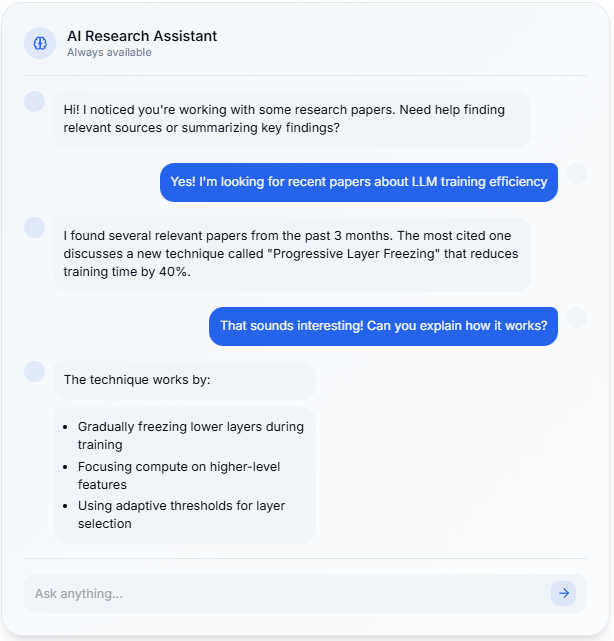
Tools like Denser.ai deliver outcomes that matter, such as real-time, context-aware retrieval that saves hours of manual effort, seamless scaling for growing datasets, and enterprise-ready reliability.
Test Scalability and Real-World Usability#
Your AI platform should keep up as your business grows. The best solutions handle increasing workloads without sacrificing performance.
You need to choose a platform built to handle the unpredictability of real-world scenarios. Solutions like Denser.ai stand out by delivering measurable results through fast and context-focused data output, all while catering to dynamic user preferences.
Look for a Solution That Matches Your Growth#
The best LangChain alternative should solve your organization's immediate problems while evolving with you. Denser.ai’s open-source flexibility and machine learning optimizations allow it to grow alongside your business, which adapts to new challenges without requiring constant overhauls.
Platforms like TensorFlow may demand a steep learning curve and heavy developer intervention for updates. With Denser.ai, the focus shifts from maintaining the tool to maximizing its value.
Weigh Practical Features#
While some platforms highlight an extensive range of features, the real value lies in tools that address your needs. Denser.ai’s dual-search technology and machine learning re-ranking stand out by simplifying complex data retrieval tasks and delivering accurate results.
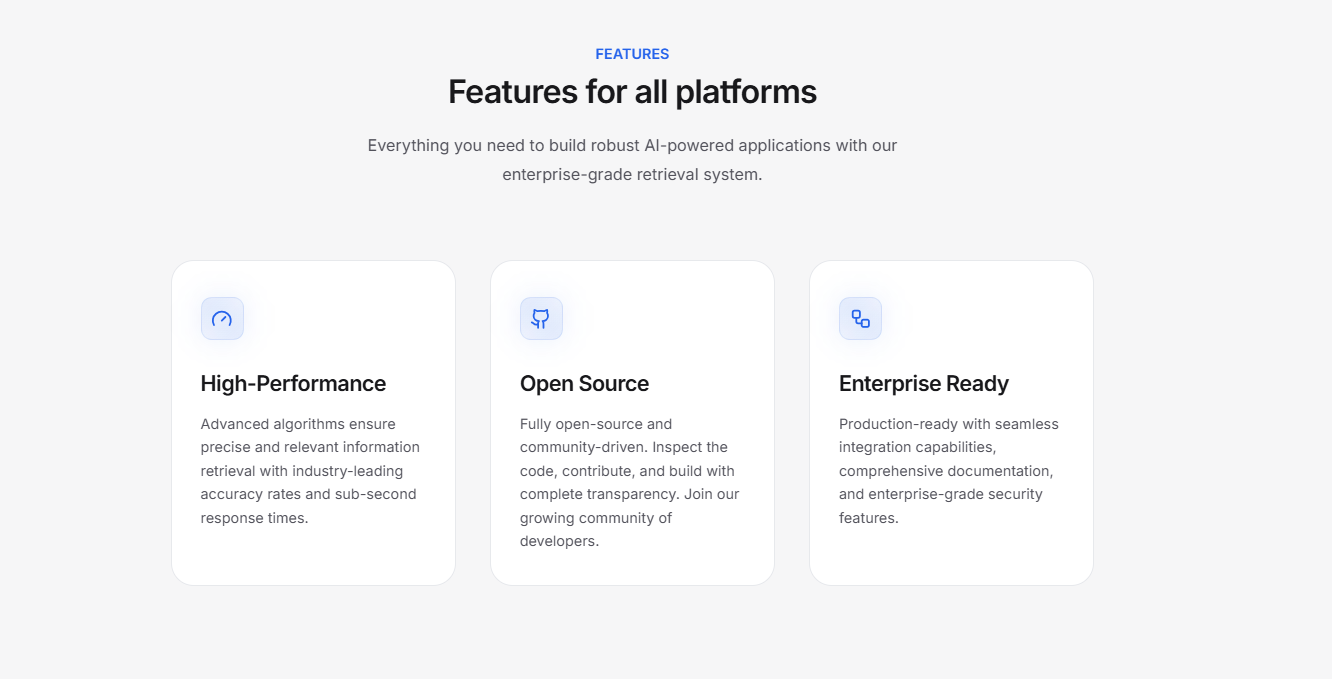
Instead of focusing on having more features, having the right features can make a better, measurable difference.
Balance Cost and Value#
While it’s tempting to focus solely on the upfront costs, it’s equally important to evaluate the long-term value the platform delivers.
A lower-cost tool might save money upfront but could lack features or scalability, which leads to higher costs later. Investing in a platform that fits your needs now and can grow with your business often proves more cost-effective over time.
How to Integrate Denser Retriever Into Your Website#
Adding a database like Denser Retriever to your website involves a few simple steps.
You'll need to manage the package using Poetry and install essential services such as Elasticsearch and Milvus. Below is a simple guide to help you start.
Setting Up Denser Retriever#
Start by cloning the Denser Retriever repository and installing the package. Open your command line interface and execute commands with just a few lines of code:

For more detailed instructions, refer to the DEVELOPMENT documentation available in the repository.
Installing Elasticsearch and Milvus#
Elasticsearch and Milvus are crucial for enabling Denser Retriever's keyword and vector search functionalities. Make sure Docker and Docker Compose are installed on your machine—these are part of Docker Desktop for both Mac and Windows.
Download the docker-compose.dev.yml file and change its name to docker-compose.yml. This can be done manually or with this command:

After renaming the file, launch the services using:

Optionally, to verify that the Milvus vector database is correctly installed and operational, perform a test using:

These steps will help you take advantage of the advanced search capabilities and intuitive interface of Denser Retriever on your website.
Shift to Smarter Data Handling With Denser.ai!#
Are you in search of more flexible and powerful alternatives to LangChain for managing your data? Denser.ai delivers smarter, faster, and more reliable solutions for data retrieval and workflows. Tools like Denser Retriever take the complexity out of managing information.
What makes Denser.ai is that it goes beyond basic keyword searches. Using advanced dense embeddings and machine learning technology, it provides accurate, context-aware results for every query.
Designed for real-world use, it handles millions of records in real time, which makes it ideal for businesses that need reliable performance at scale. Plus, with its open-source flexibility, Denser.ai adapts to your unique needs without adding complexity or unnecessary costs.

Switch to Denser.ai for smarter workflows, accurate results, and scalable performance. Deploy now or contact us to improve your data strategies.
FAQs About LangChain Alternatives#
What capabilities do LangChain alternatives have for natural language processing tasks?#
LangChain alternatives like Denser.ai are great at natural language processing tasks. They can analyze, understand, and generate human-like text, aiding in applications such as chatbots, content creation, and sentiment analysis.
Can LangChain alternatives handle proprietary data securely?#
Yes, LangChain alternatives are built with security in mind, ensuring that proprietary data is handled securely. They offer robust data protection measures to safeguard sensitive information, making them suitable for industries that deal with confidential data.
How do LangChain alternatives integrate external data sources?#
These alternatives are equipped to integrate and process external data from various sources. They can connect to APIs, databases, and cloud services, allowing businesses to enrich their AI models with real-time data for enhanced decision-making.
What is the role of prompt engineering in LangChain alternatives?#
Prompt engineering optimizes the performance of AI models in LangChain alternatives. It involves crafting queries or prompts that guide the AI to generate the most relevant and accurate outputs. This improves the efficiency of tasks like data retrieval and content generation.